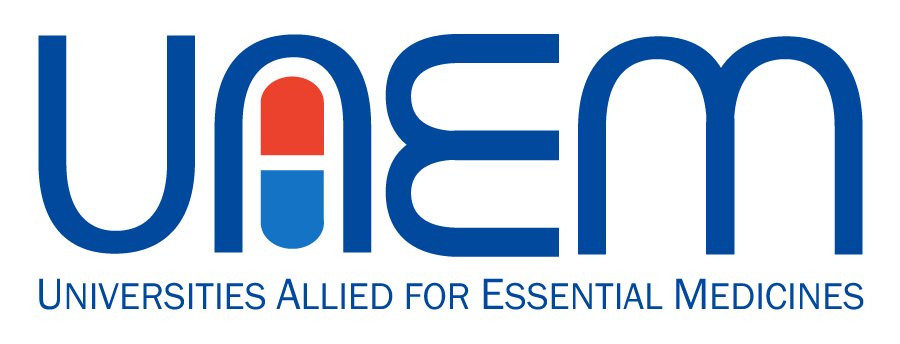Transforming Clinical Trial Results: Report
For Immediate Release: April 22, 2024
Contact: info@uaem.org
WASHINGTON, D.C., NEW HAVEN, CT, NEW YORK, NY — Universities Allied for Essential Medicines (UAEM), the Yale Collaboration for Regulatory Rigor, Integrity, and Transparency (CRRIT), and Columbia Law School’s Science, Health and Information Clinic SHIC release a report, “Transforming Clinical Trial Results Reporting in the United States” detailing widespread underenforcement of clinical trial results reporting at U.S. Food and Drug Administration (FDA) and National Institutes of Health (NIH).
A core component of the report includes UAEM’s multi-year investigation of sensitive documents detailing the state of noncompliance and underenforcement of ClinicalTrials.gov regulations. UAEM partnered with Columbia Law School’s SHIC to obtain these documents through Freedom of Information Act (FOIA) requests with the HHS, FDA, and NIH. A synopsis of the obtained documents and other relevant information can be found here.
Analysis of the FOIA documents and other publicly available information revealed the following key findings:
Pre-Notices and Notices of Noncompliance are 90% and 100% effective at improving results reporting, respectively.
FDA has only issued 149 Pre-Notices, despite the thousands of noncompliant clinical trials.
FDA and NIH are aware of widespread noncompliance with results information reporting requirements.
FDA claims enforcement resources are limited, yet the agency has not requested additional Congressional appropriations or user fees dedicated to ClinicalTrials.gov enforcement.
FDA has repeatedly called for voluntarily compliance and purports the data available on ClinicalTrials.gov is insignificant when making clinical decisions, stating that, “It is generally not possible to draw conclusions about the safety or efficacy of FDA-regulated medical products based solely on the limited amount of public information on ClinicalTrials.gov for any specific trial.”
UAEM’s Clinical Trial Transparency Team Lead, Megan Curtin writes, “While it is heartening to know the FDA has moved over this last year to publicize Pre-Notices of Noncompliance, our report shows clearly that there are major gaps in enforcement that need to be addressed to ensure patients are protected with timely clinical trial reporting.”
CRRIT Co-Director and UAEM Board President, Dr. Reshma Ramachandran writes, “When the FDA wields its enforcement authority, even in the form of a warning letter, it is remarkably effective in making available once missing clinical trial results, providing crucial information to patients, clinicians, and researchers. Had the FDA fully wielded its enforcement authority, it would have been able to impose at least $62 billion in fines for missing trial results, which is almost 9 times the budget of the entire agency and could have been used to sustain enforcement efforts that the agency has repeatedly stated it does not have the resources for.”
“SHIC’s student attorneys and I have been proud to represent UAEM in this important work to protect and expand public access to clinical trial information,” said Christopher Morten, Director of SHIC. “With some pressure from us, FDA has improved its enforcement of FDAAA, but it still has a long distance to go.”
UAEM’s Clinical Trial Transparency Campaign, was established in 2019 to address outstanding noncompliance with federal reporting requirements. In February 2023, Columbia Law School’s SHIC filed a formal FDA Citizen Petition on behalf of UAEM that provided evidence-based requests for the agency to increase and improve enforcement of clinical trial results reporting. In February 2024, FDA issued a complete response to the petition and credited UAEM for the agency’s new public dashboard of Preliminary Notices of Noncompliance (Pre-Notices).
History of clinical trial reporting laws in the United States:
In the 1990s and 2000s, several drug safety scandals rocked FDA and the United States. Among these was that of Vioxx, a contributing catalyst to current law and regulation around clinical trials transparency: In 1999, Merck began marketing Vioxx as a new, supposedly safer painkiller, yet failed to disclose known adverse cardiovascular events resulting in the deaths of as many as 38,000 patients and a $4.8 billion settlement. In response to this and other issues, Congress passed the FDA Amendments Act of 2007 (FDAAA) mandating public reporting of the results of essentially all late-stage clinical trials of FDA-regulated drugs and devices, so long as the trials are conducted in whole or in part in the United States. Under FDAAA, trials must be registered and their results reported to the public on the ClinicalTrials.gov database. FDA is entrusted with enforcing this reporting mandate, along with the NIH, although FDA is the agency expected first to act. Yet, nearly two decades after, the FDA almost 5,000 clinical trial results remain missing from the ClinicalTrials.gov database.
###
About UAEM:
Universities Allied for Essential Medicines (UAEM) is an international health equity organization aimed at increasing transparency in research and access to affordable medicine. UAEM’s Clinical Trial Transparency campaign is led by student advocates and academics dedicated to ethical research conduct.
About CRRIT:
The Yale School of Medicine’s Collaboration for Regulatory Rigor, Integrity, and Transparency (CRRIT) initiative that conducts strategic research to inform policies to ensure robust evidentiary standards for U.S. Food and Drug Administration-regulated medical products, and to evaluate regulatory enforcement and transparency of current policies.
About SHIC:
Columbia Law School’s Science, Health, and Information Clinic (SHIC) addresses legal needs unmet by public interest legal organizations and other law school clinics. Students, under faculty supervision, provide pro bono legal services to activists and organizers, scientific and medical researchers, patient and consumer groups, nonprofit organizations, and other clients.
